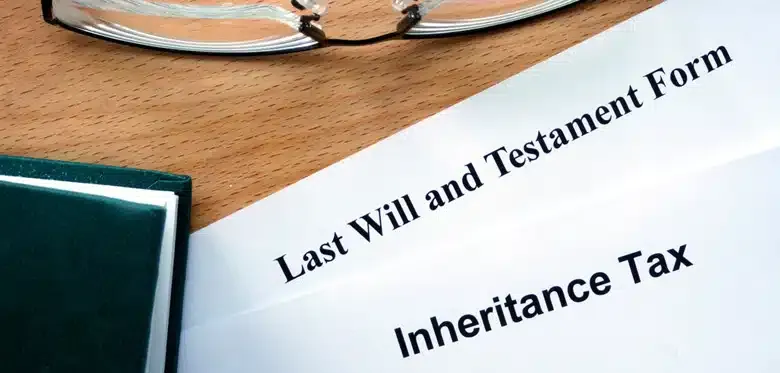
Estate and Tax Planning
Estate and tax planning is not always at the forefront of people’s minds. However, it is extremely important to think about your long-term financial affairs and seek a solicitor’s advice so that your assets are protected, and your loved ones are provided for.
no obligation

Our expert solicitors can advise you on the best way to structure your assets to lower the amount of tax to be paid from your estate on death.
The word ‘Estate’ is a term used to describe everything that you were entitled to at the time of your death, such as land, property, bank accounts, and personal effects.
Whether or not a Grant of Probate or Letters of Administration are needed will be dependant on the value of your Estate and type of assets within you Estate.
Many of our clients also run businesses and we can discuss the various tax exemptions and reductions available.
Every estate will be different, and our experienced solicitors advise clients on the best approach to take to meet their needs and ultimately give them peace of mind that their financial affairs are in order.
Estate and tax planning is vital to protect your capital and your loved ones. Our Estate and tax planning solicitors will help you plan your assets so you can make sure your family is financially secure in the future.
How we can help
At P.A. Duffy & Co Solicitors our legal team is dedicated to providing a five-star legal service to you, our experts can tailor our service to meet each individual family's needs. Our main goal is to satisfy you, our client by assuring you that you and your loved ones will have financial support after your retirement.
The intricacies and skill involved are not to be underestimated and specialist legal and accounting advice should be sought.
FAQs
What are the ‘assets’ in my Estate?
Items considered as ‘assets’ in your Estate would be:
Your home and the contents inside
Your vehicle(s)
Personal possessions such as jewellery and clothes
Foreign property (holiday homes abroad)
Investments, shares, interest in trusts
Anything you gave away in the seven years before your death including any gifts
What is the difference between a Grant of Probate and a Grant of Administration?
A Grant of Probate is a document issued by the Court giving power to the Executors named in a Will to distribute the Estate in accordance with your wishes in accordance with your Will.
A Grant of Administration is a document issued by the Court to allow your beneficiaries, to administer the estate in accordance with the rules of intestacy (intestacy is a term used for someone who dies without a Will and the law has specific rules governing what happens in this event).
Estate Valuation
In order to obtain the Grant of Probate or Grant of Administration the Executor of Administrator (usually with the assistance of their Solicitor) has to value the estate. To do so, it will involve contact with the relevant institutions such as Banks, Pension Companies, and Insurers to establish the value of funds held at the date of death, together with valuations of any land and property held by you. At the conclusion of this will process, it can be established if any inheritance tax is due to be paid by the estate. In very simplistic terms, an Estate is liable to pay inheritance tax if, at the time of death, the estate is worth more than the Inheritance Tax Nil Rate Band (currently £325,000.00) (there are various exemptions and exceptions to this. Contact P.A. Duffy Solicitors for further information on this).
Applying to the Court for a Grant of Probate / Grant of Administration
Once it has been established how much tax, if any, is payable and arrangements made for payment, then an Oath is prepared by a solicitor for the Executor or Administrator and is sent to the High Court together with details of the Inheritance Tax position. On being satisfied with the content, the Court will then issue a Grant of Probate or Grant of Administration which will then allow any funds being held in financial institutions to be released to the Beneficiaries (those named in the will or entitled to under intestate) and any property transferred.
Get in Touch
Speak to us with No Obligation
Contact Our Solicitors
Please fill out the simple form below and we will contact you as soon as possible








